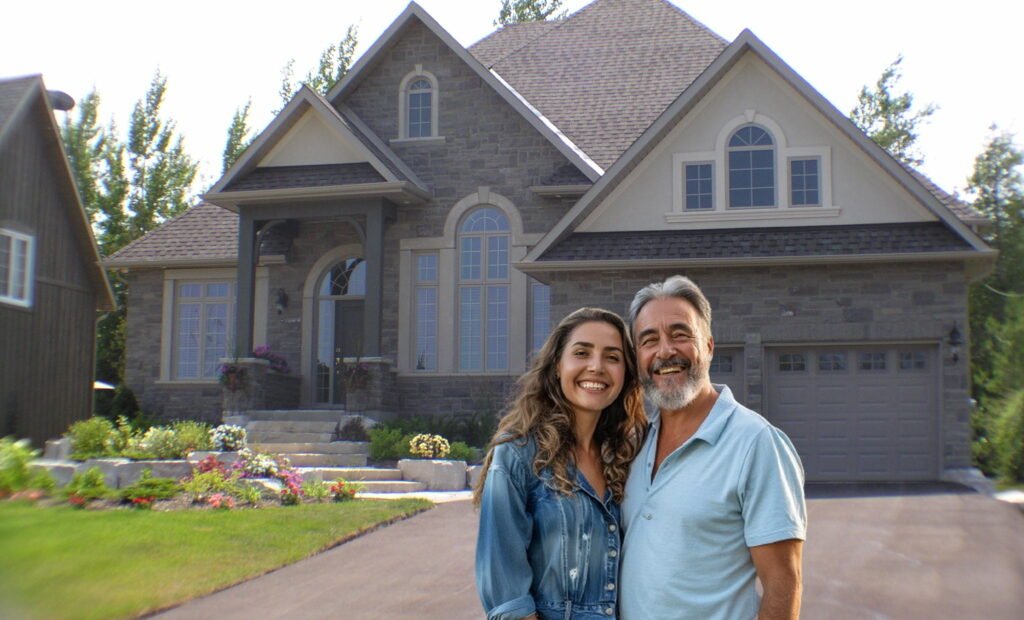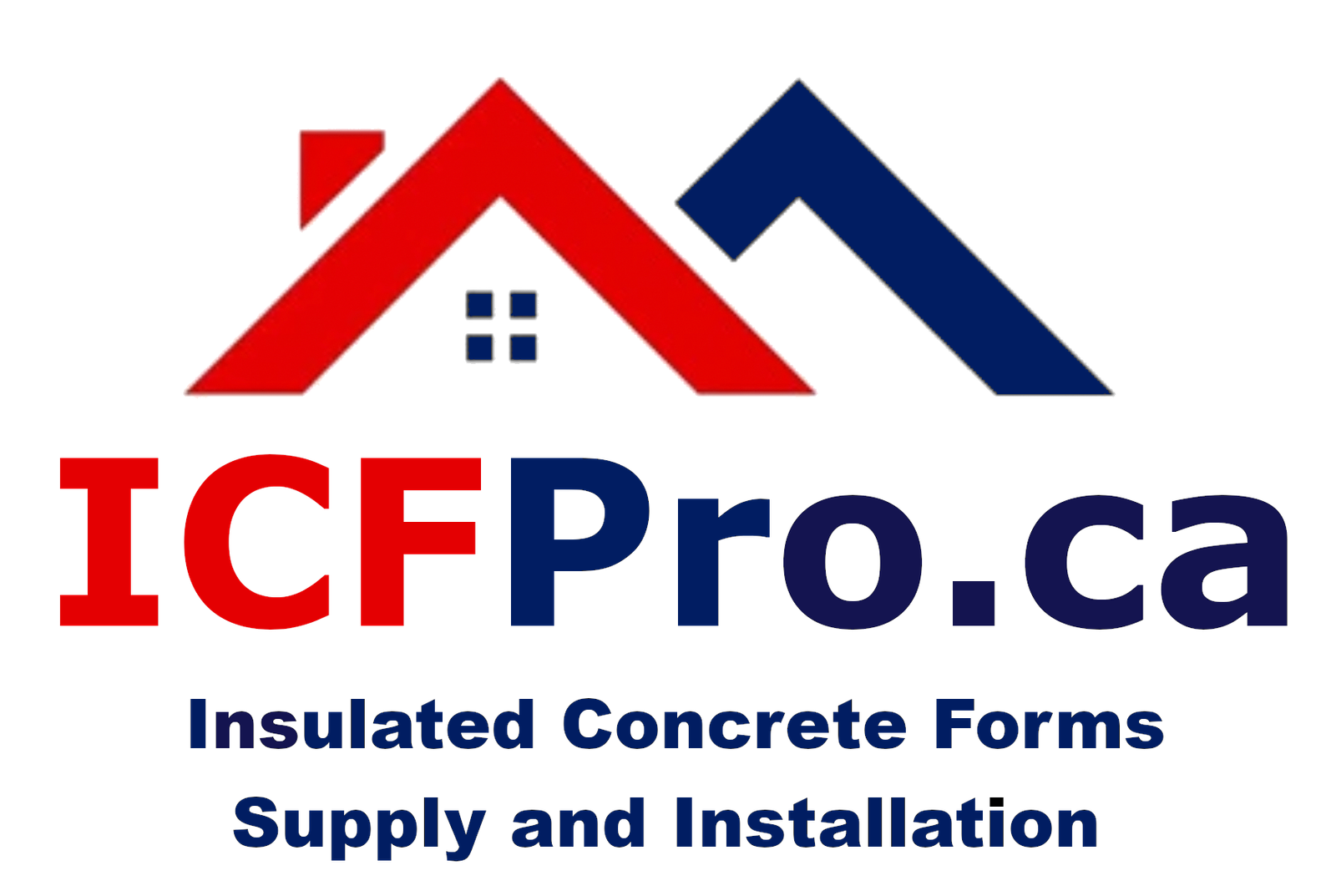ICFPro.ca is a division of ICFhome.ca - Phone 1 866 868-6606 - Direct Line 1 705 533-1633 - Email: info@icfhome.ca
ICF Energy Efficiency: Building Homes That Save Energy and Money

A Smarter Way to Build for Comfort and Sustainability
Energy efficiency isn’t just a buzzword—it’s a necessity. As energy costs rise and the effects of climate change become more apparent, homeowners are looking for smarter ways to reduce their energy use without sacrificing comfort. If you’re planning to build a new home or upgrade an existing one, Insulated Concrete Forms (ICF) could be the answer you’re looking for.
At ICFPro.ca, we’ve spent decades building homes that are strong, comfortable, and efficient. And let me tell you—ICF is a game-changer when it comes to energy savings. From cutting heating and cooling costs to aligning with Ontario’s SB-12 energy efficiency standards, ICF homes set the bar high for sustainable living.
Let’s dive into how ICF construction delivers unmatched energy efficiency and why it’s the right choice for your next home or building project.
What Makes ICF Homes So Energy-Efficient?
When we talk about energy efficiency, we’re really talking about how well a home can maintain a comfortable temperature without relying too heavily on heating or cooling systems. In traditional homes, energy escapes through gaps, thermal bridges, and inefficient insulation. But with ICF, those issues are a thing of the past.
Here’s what makes ICF energy efficiency stand out:
1. Continuous Insulation
Unlike traditional wood framing, which uses batt insulation between studs, ICF walls provide continuous insulation.
- No Gaps, No Thermal Bridges: The foam forms create an unbroken layer of insulation around your home, eliminating weak points where heat can escape.
- Consistent Comfort: ICF walls keep the temperature inside your home steady, regardless of what’s happening outside.
2. High R-Value
The R-value measures how well a material resists heat flow. Higher R-values mean better insulation—and ICF delivers in spades.
- Typical ICF walls have an R-value of R-22 to R-30, depending on the thickness and type of foam used.
- This far exceeds the insulation performance of most wood-framed walls, which often fall between R-13 and R-20.
3. Airtight Construction
Air leakage is one of the biggest energy wasters in traditional homes. Drafts, gaps, and poorly sealed joints let warm air escape in winter and cool air escape in summer.
- ICF walls are airtight, drastically reducing air leakage.
- Less air leakage means less work for your heating and cooling systems—and lower energy bills.
How ICF Saves on Heating and Cooling Costs
Heating and cooling account for about 50-70% of the energy use in most homes. With ICF, you can cut those costs dramatically. Here’s how:
Winter Savings
In the dead of an Ontario winter, heating your home can get expensive fast. ICF walls act like a thermal blanket, keeping the heat inside where it belongs.
- Minimal Heat Loss: The concrete core retains heat, while the foam insulation prevents it from escaping.
- Lower Heating Demand: Because your home stays warmer naturally, your furnace doesn’t have to work as hard.
Summer Savings
When summer rolls around, keeping your home cool is just as important. ICF walls block heat from penetrating your home, keeping it comfortable without over-relying on air conditioning.
- Reflective Insulation: The foam forms help reflect heat away from your home.
- Natural Cooling: The concrete core absorbs and slows down heat transfer, so your home stays cooler for longer.
ICF and Green Building Standards: Aligning with SB-12
If you’re building in Ontario, you’re probably familiar with SB-12, the energy efficiency supplement to the Ontario Building Code. SB-12 outlines the minimum energy performance requirements for new homes, and meeting these standards isn’t optional—it’s mandatory.
Here’s how ICF helps you meet (and exceed) SB-12 requirements:
1. Exceeding Thermal Performance Standards
SB-12 requires homes to achieve specific levels of insulation and thermal performance. With its high R-values and continuous insulation, ICF meets these standards easily—often going above and beyond what’s required.
2. Airtightness and Energy Modeling
SB-12 emphasizes the importance of airtight construction to reduce energy waste. ICF’s airtight design aligns perfectly with this requirement, making it easier to pass energy audits and blower door tests.
3. Renewable Energy Integration
ICF homes are ideal for integrating renewable energy systems like solar panels or geothermal heating. By reducing overall energy demand, ICF construction makes renewable energy systems more effective and affordable.
Real-World Energy Savings: What Homeowners Can Expect
You’ve probably heard claims that ICF homes can cut energy costs by up to 50%. But what does that actually mean for you? Let’s break it down.
Heating Costs
For a typical 2,000-square-foot home in Ontario, heating costs can range from $1,500 to $2,500 per year. With ICF, you could save $750 to $1,250 annually—money that stays in your pocket instead of going to your utility provider.
Cooling Costs
In the summer, air conditioning costs can add another $300 to $500 to your energy bills. With ICF, you’ll spend far less on cooling, thanks to the natural temperature regulation provided by the concrete and foam.
The Environmental Benefits of Energy-Efficient ICF Homes
When you choose ICF, you’re not just saving money—you’re making a positive impact on the planet.
Lower Carbon Emissions
By reducing your home’s energy consumption, you’re also reducing its carbon footprint. Over the lifetime of an ICF home, this adds up to a significant reduction in greenhouse gas emissions.
Sustainable Materials
ICF forms are often made from recyclable materials, and the reduced energy use over the life of the home offsets the environmental impact of manufacturing.
The Comfort Factor: Why ICF Homes Feel Better
Beyond the numbers, there’s something intangible about living in an energy-efficient home—it just feels better.
No Drafts or Cold Spots
In a traditional home, you can feel where the insulation is weakest. With ICF, the temperature is consistent in every corner of the house.
Quieter Interiors
The same airtight, insulated design that makes ICF energy-efficient also makes it incredibly quiet. You’ll enjoy a peaceful, serene environment that feels like a true retreat.
The Long-Term Value of Energy-Efficient ICF Homes
When you build with ICF, you’re making an investment—not just in your home, but in your future.
Lower Maintenance Costs
ICF walls are durable and resistant to rot, pests, and mold, which means fewer repairs and replacements over the years.
Higher Resale Value
Energy efficiency is a major selling point for today’s homebuyers. An ICF home stands out in the market, often commanding a higher resale value.
Why Choose ICFPro.ca for Your Energy-Efficient Home?
At ICFPro.ca, we’ve been building energy-efficient ICF homes since 1995. With decades of experience and a deep commitment to quality, we know what it takes to create homes that save energy, reduce costs, and enhance comfort.
When you work with us, you’re not just getting a builder—you’re getting a partner who will guide you through every step of the process. From design to construction to final walkthroughs, we’re here to make sure your ICF home exceeds your expectations.
Let’s Build Something Sustainable Together
Ready to create an energy-efficient home that works for you and the planet? Let’s talk.
📍 Request a Free Quote Today → [Get Started]
📍 Learn More About ICF Energy Efficiency → [Explore Our Services]
Stronger. Smarter. More Sustainable. That’s the ICFPro.ca promise.
